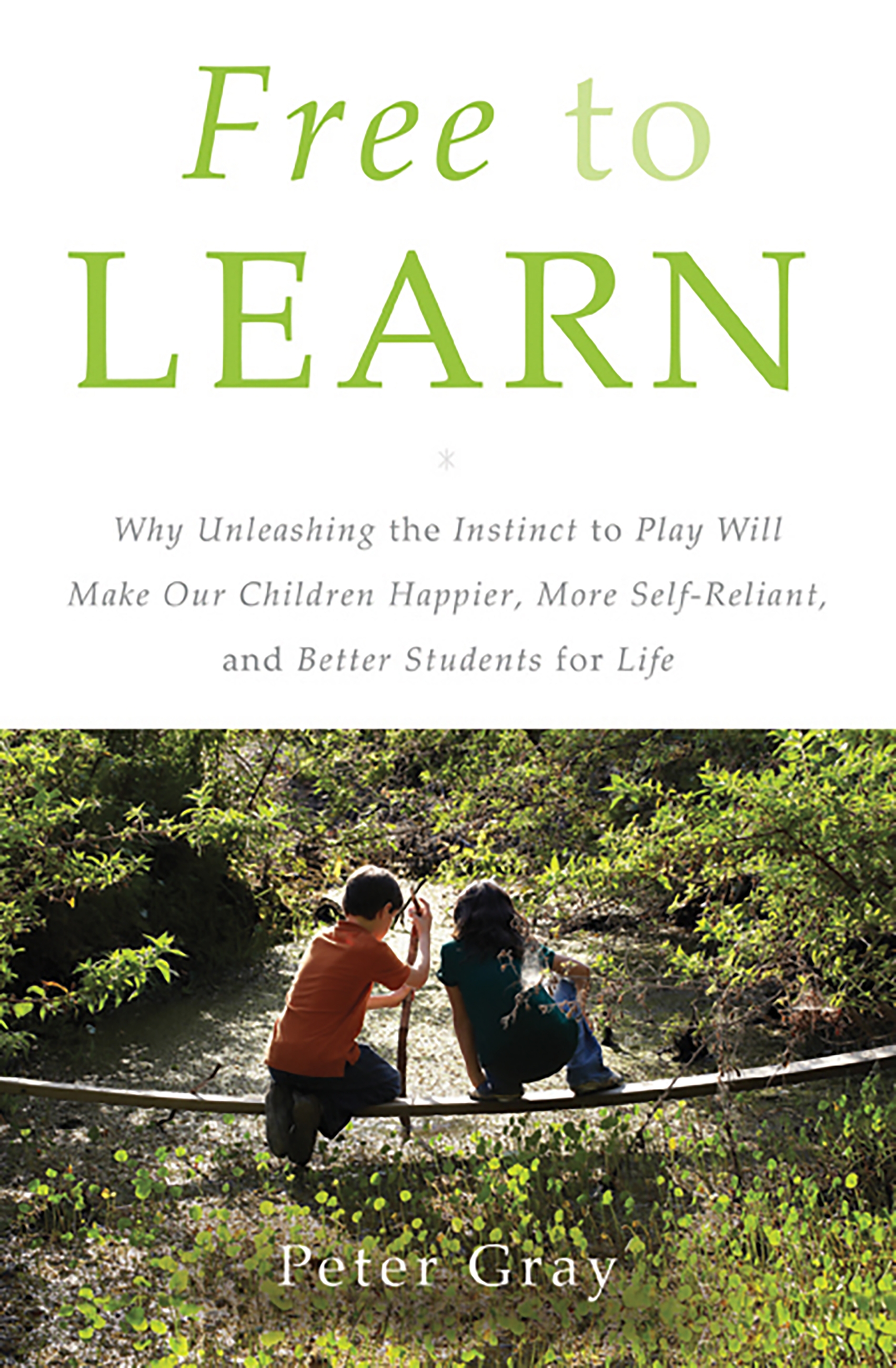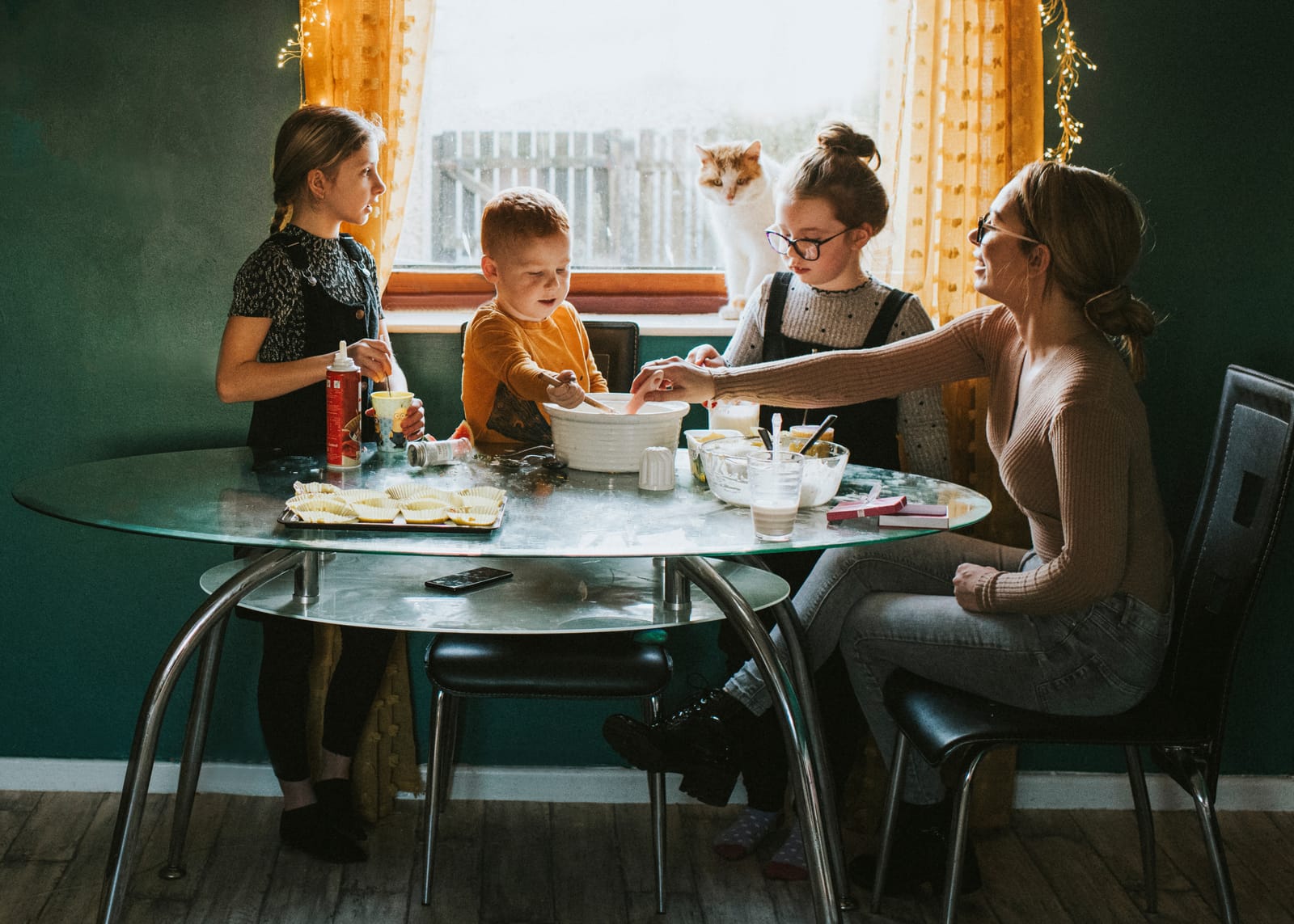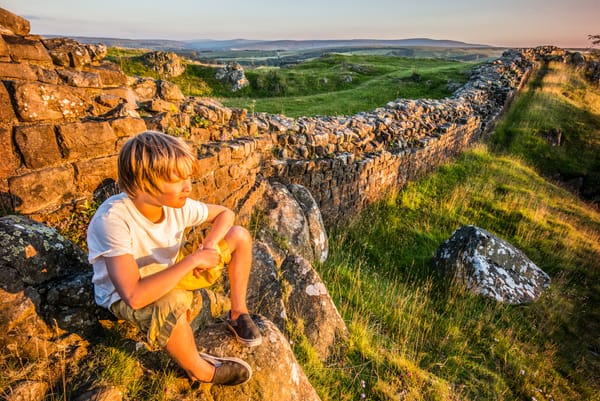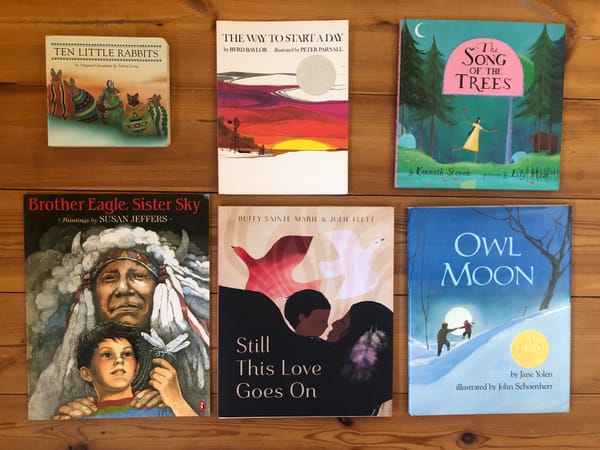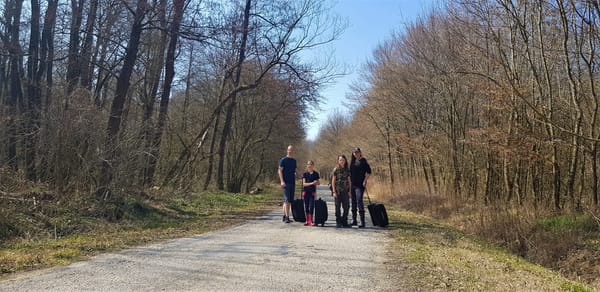Unschooling is both easy and difficult to describe. The easy answer is that unschooling means "not schooling," but it is a lot harder to explain what we do instead of schooling says Pam Sorooshian.
Unschooling means not depending on the usual school methods. It means no lesson plans, no curriculum, no assignments, no quizzes or tests, no required memorising, and no grades. It means that the parent does not become the child's schoolteacher - it means not creating a miniature classroom in the home. Instead, unschoolers focus on living a rich and stimulating life together. Seriously, that's it. We do not "school"; instead, we concentrate on living a life filled with opportunities and possibilities and experiences. Children are born learners. Literally. What unschoolers aim for is keeping that love of learning and intense curiosity alive as the children grow up.
Following interests
How do we do this? In practice, it is going to look very different for each unschooling family. "We follow our interests," is the unschoolers' anthem. Each family's interests will lead to all kinds of learning - history, maths, writing, music, reading, science, and all the other real-life subject matter that is valuable and interesting. But we won't think of them as "subjects." We'll just think of them as interesting and fun and fascinating and something we want to pursue further or not. One thing will lead to another and life goes on and kids learn and parents learn and life is full of opportunity everywhere we look. It is natural for people to learn - each in their own way. It is natural for children to want to understand the world around them. They also want to join the adult world and become competent and capable adults themselves. They'll strive for this in their own natural ways.
An environment that supports learning
Unschooling parents work on creating a home environment that supports their children's natural desire to learn and grow. Each child is unique and experiences the world in a different way than any other person and expresses himself in ways that are different from every other person. There is no curriculum in the world that is designed specifically and dynamically for any particular child, but an unschooling lifestyle can, in effect, provide a 100-percent individualized learning experience. Unschoolers aren't likely to learn exactly what the professional educators and textbook publishers think they should - so, in that sense, they may have "gaps" in their learning. But they'll learn so much more, too, that is not included in those lists of "learning standards." What is important for one person to learn is not necessarily important for another. We don't really have any way of predicting what will be important to know in the future. We do know that learning that is forced or pressured is not lasting. Most of what kids are "taught" is not truly "learned" in any kind of lasting way.
Unschoolers also have in mind a lifelong timeline for learning. We don't worry about whether a child is at "grade level" because we know that children are learning something all the time and that they will eventually learn whatever they need to know for whatever reasons they have. We don't worry that they'll miss something important because, if it is important, they'll realize that and find a way to learn it.
A true unschooling slogan is, "Life is learning, learning is life." Unschoolers simply do not think there are times for learning and times for not learning. They don't divide life into school time or lesson time versus play time or recreation time. There is no such thing as "extracurricular" to an unschooler - all of life, every minute of every day, counts as learning time and there is no separate time set aside for "education".
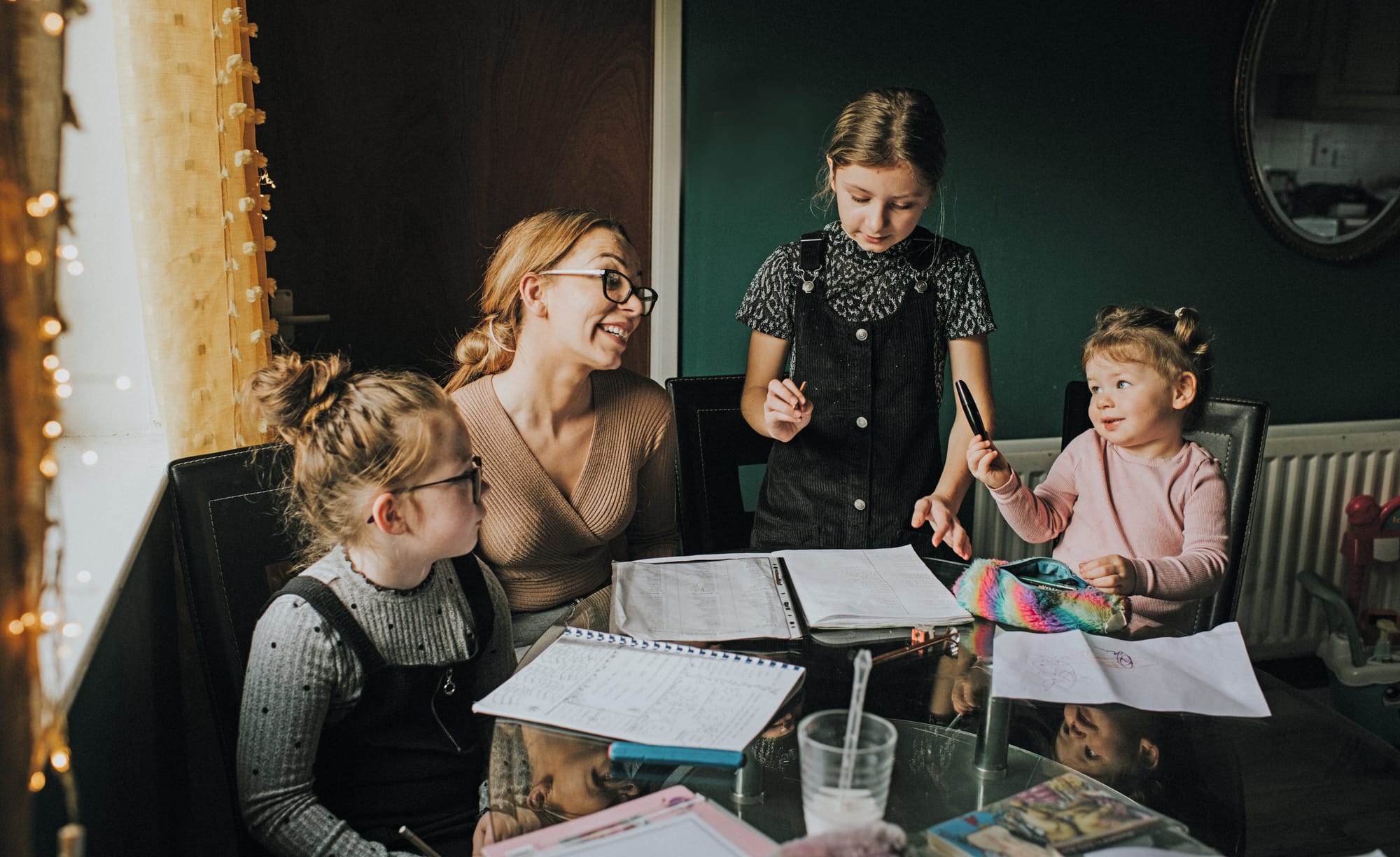
PRINCIPLES OF UNSCHOOLING
1. Learning happens all the time. The brain never stops working and it is not possible to divide time up into "learning periods" versus "non-learning periods." Everything that goes on around a person, everything they hear, see, touch, smell, and taste, results in learning of some kind.
2. Learning does not require coercion. In fact, learning cannot really be forced against someone's will. Coercion feels bad and creates resistance.
3. Learning feels good. It is satisfying and intrinsically rewarding. Irrelevant rewards can have unintended side effects that do not support learning.
4. Learning stops when a person is confused. All learning must build on what is already known.
5. Learning becomes difficult when a person is convinced that learning is difficult. Unfortunately, most teaching methods assume learning is difficult and that lesson is the one that is really "taught" to the students.
6. Learning must be meaningful. When a person doesn't see the point, when they don't know how the information relates or is useful in "the real world," then the learning is superficial and temporary - not "real" learning.
7. Learning is often incidental. This means that we learn while engaged in activities that we enjoy for their own sakes and the learning happens as a sort of "side benefit."
8. Learning is often a social activity, not something that happens in isolation from others. We learn from other people who have the skills and knowledge we're interested in and who let us learn from them in a variety of ways.
9. We don't have to be tested to find out what we've learned. The learning will be demonstrated as we use new skills and talk knowledgeably about a topic.
10. Feelings and intellect are not in opposition and not even separate things. All learning involves the emotions, as well as the intellect.
11. Learning requires a sense of safety. Fear blocks learning. Shame and embarrassment, stress and anxiety - these block learning.
Trust the child
Unschooling takes an intensity and focus on living life with a great deal of gusto on the part of the parents. Unschooling parents develop a high level of sensitivity to their children in order to know what to offer, when to support, when to back off, how busy they want to be, how much solitude they need, when to nudge them a bit with encouragement, when to get more involved, and so on. Unschooling parents always have their kids and their interests in the back of their minds, thinking always about what would interest them; bringing the world to them and bringing them to the world in ways that "click" for that particular child. Unschooling parents trust that the child will learn without external pressure.
We could do the curriculum - I could put together a few hours per day of "school work," insisting that my children do it. But I've read everything I could get my hands on about learning and I've had 30 years of teaching experience. I know, deep down inside, that any coercion in learning creates either open resistance, passivity, or apathy, and I don't want to create any of those in my children. Learning feels good - it might be challenging, but it is also pleasurable. Coercion feels bad, and trying to learn under coercion is not pleasurable, even when we make the best of it. Children who have experienced the pleasure of unforced learning show the effect in their incredible creativity, confidence, intensity, focus, persistence, self-knowledge, and strong sense of personal responsibility.
Unschooling parents want our kids to discover their life's passions and to jump into them with both feet, with confidence and trust in life and themselves. We want our children to know, deep inside themselves, that they are strong and capable and can make their own individual choices. We want them to be willing to buck the mainstream culture and buck the counterculture. We want them to think for themselves and do what they think is right and good and worthy and valuable. I think, most of all, we want them to love being alive - now and in their future.
THE ROLE OF THE UNSCHOOLING PARENT
1. Show respect for all of a child's interests equally.
2. Keep the child in mind as I go through life, so that I notice things that might be of interest to that child.
3. Find ways to include the child in my own daily life - live a more "open-book" life than the norm.
4. Follow up on things the child is interested in - and do this in a wide variety of ways, not only by "getting him a book on it."
5. Live a family life that is rich with experiences of a variety of kinds both at home and outside the home.
6. Have resources around the home that are interesting and stimulating - things that will encourage exploration of ideas.
7. Discuss things - spend time in conversation. This is probably overall the most important parental "action" involved in unschooling.
8. Have a playful attitude - play together, have fun, appreciate the amazing world around you. Don't be cynical, be able to be amazed and find the world a fascinating place. This is the most important attitude for an unschooling parent.
9. Be self-aware of your own thinking and behavior. Purposely stretch your imagination - question your own assumptions, check your own automatic impulses.
10. Be very observant of what your child is really doing - don't view him/her in a shallow superficial way. Recognize that there is a reason for a child's actions, that a child is "born to learn" and is always learning. Get to know your child's own special favored ways of learning.
11. Wholeheartedly support a child's passions even if, to you, they don't look like "education."
Pam is mum to three daughters, all homeschooled before going on to college, graduate school, and their own careers, marriages and parenthood.
MORE INSPIRATION
READ Free to Learn by Peter Gray
